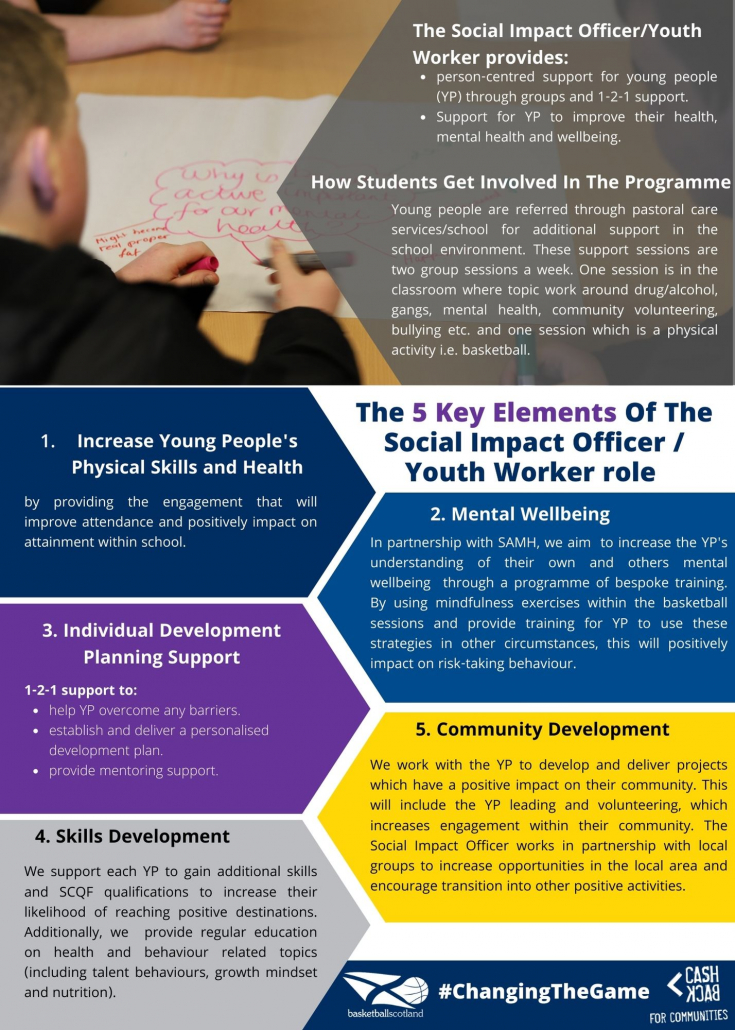The Phase 6 programme builds on what we delivered in Phase 5 (view our Year 3 Impact Report here), expanding our programme to both schools and the wider community. The focus of the project is to contribute to the development of a community of young people who, by engaging in activities that improve their physical, mental and social health, build resilience against antisocial behaviour and involvement in the justice system.
We will work with young people through a ‘core’ programme and a ‘wider group’ one. The core programme will target 48 young people with adverse childhood experiences with interventions targeting the development of factors to resilience, including:
-
- 1 to 1 and small group support from a Social Impact Officer
- Personal development planning
- Engagement in positive sport and physical activities
- Increasing understanding of mental health and wellbeing and how to positively impact this
- Attainment of additional qualifications to support progress to positive destinations
- Support to engage in positive alternatives to anti-social behaviour outside of school
Our wider group programme will work with 1260 young people across our target high school and local feeder primary schools to deliver positive basketball activity with embedded mental wellbeing messaging designed to improve emotional literacy.
We will work primarily in Lochend Community High School, St Andrews RC Secondary and St Mungo’s Academy. We will also deliver basketball to the majority of their feeder primary schools.
The CashBack outcomes we are working towards through the programme are:
-
- Young people are diverted from anti-social, criminal behaviour and involvement with the criminal justice system
- Young people participate in activity which improves their learning, employability and employment options (positive destinations)
- Young people’s health, mental health and wellbeing improves
- Young people contribute positively to their communities
- Young people build their personal skills, resilience, and benefit from strengthened support networks and reduce risk taking behaviour
Find out more about our programme in our Theory of Change Model












